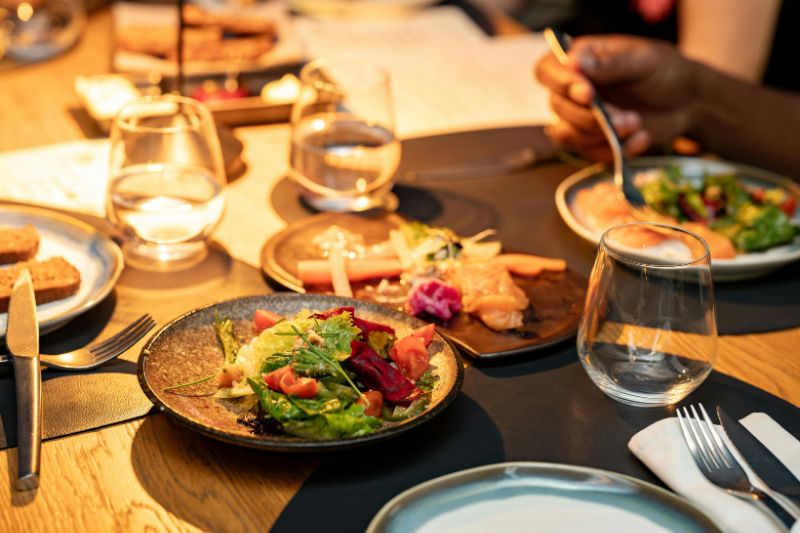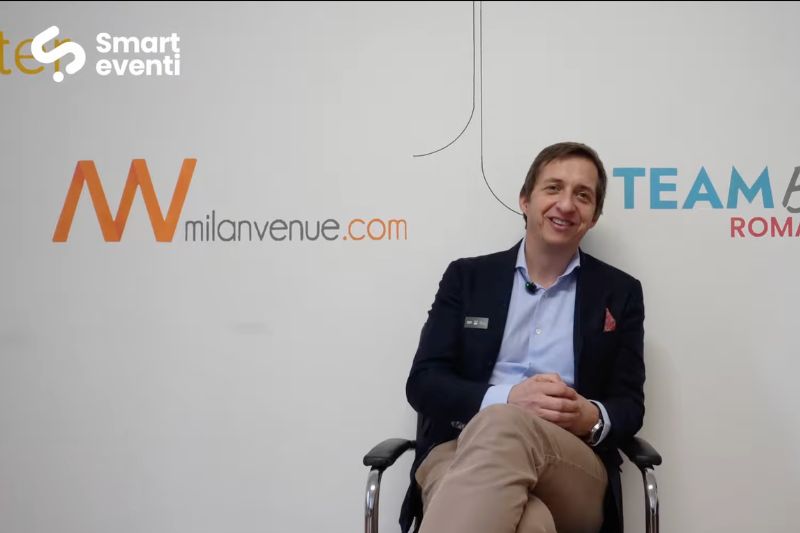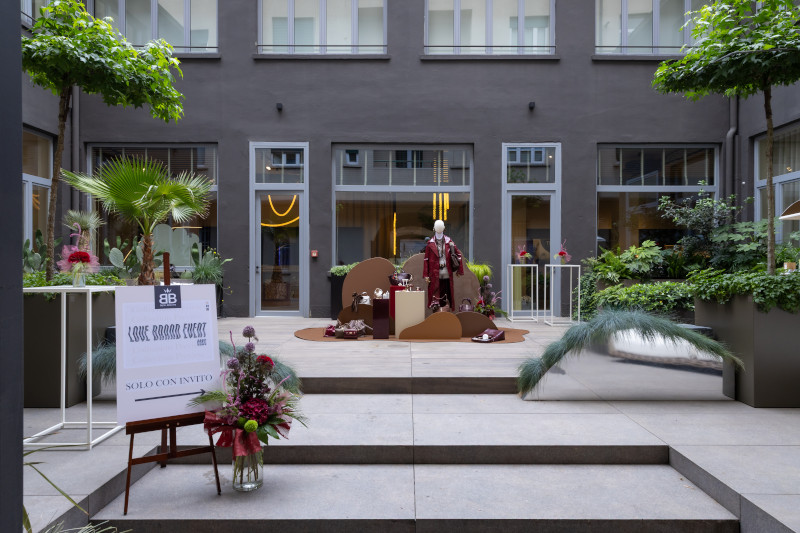How to plan a perfect company anniversary: 5 practical tips for a memorable event
Company anniversaries are moments that catch you off guard. One minute you’re checking emails, the next you realize—wow, we’ve been at this for five, ten, even fifty years. Making that milestone feel memorable takes more than a booked venue and a few canapés. It takes planning, a bit of strategy, and some attention to the small things that stick in people’s minds.
Whether it’s five years or fifty, the essentials stay the same: be clear about what you want, set a timeline you can actually manage, and remember that every detail shapes how people experience the day. Let’s run through the steps to make an anniversary worth remembering.
Looking for a venue for your company anniversary? Contact us
Define the event's objectives and identity
Before you do anything else, sit down and figure out what this anniversary actually means for your organisation. Is it primarily about reinforcing your brand positioning in the market? Perhaps it's more focused on thanking your team for their dedication and hard work. Maybe you're using this milestone to strengthen ties with clients and industry partners.

The answer matters enormously. Recent event planning research emphasises that successful anniversary celebrations start with a discovery process focused on the core question of why you're celebrating. Some companies go for a very formal vibe, the kind that quietly says, “We’ve been here a long time, and we mean business.” Others lean into something more relaxed, where people can actually unwind, joke a little, and see the humans behind the brand. A few keep the guest list tight, inviting only key stakeholders or long-time partners. Others, though, take the opportunity to throw the doors open, welcome a wider group, and make it a shared celebration—sometimes it’s messy, sometimes it’s chaotic, but it feels alive. The tone you choose ends up shaping everything else: the invitations, the venue, even the way people interact during the event. For an example of venues that fit a corporate celebration perfectly, see our best venues fo corporate parties in Milan.
Establishing your event's character
Your company's personality should shine through every aspect of the event. A tech startup celebrating five years will naturally have a different vibe than a manufacturing firm marking its golden jubilee. This isn't about right or wrong choices. It's about authenticity. The tone you set here, whether formal or casual, intimate or grand, will ripple through every subsequent decision you make.
Consider what message you want guests walking away with. Are you projecting confidence about the future? Gratitude for the past? Excitement about transformation? These aren't just philosophical questions; they're practical ones that'll inform everything from your invitation wording to your entertainment choices.
Strategic budget and timeline
Let's talk money and time, because both matter more than you might think. Start planning at least three to four months ahead, particularly if your anniversary falls during busy periods when venues get snapped up quickly. Industry experts recommend beginning preparations four to six months in advance, with additional time needed for custom elements like anniversary merchandise or website announcements.
Here's where reality meets aspiration. Your venue and catering will typically consume somewhere between 60 and 70 percent of your total budget. That's just how these things work. The remaining chunk covers communication materials, entertainment, audio-visual equipment, photography, and those little extras that add polish to the experience.
Building your programme while maintaining strategic flexibility
Always, and I mean always, set aside a contingency buffer of about 10 to 15 percent. Equipment fails. Guest counts change. Weather disrupts outdoor plans. Last-minute opportunities arise that are too good to pass up. This buffer isn't pessimism; it's pragmatism. Many organisations allocate around 5 to 10 percent of their marketing budget specifically for milestone events, treating them as investments in employee engagement and brand visibility rather than mere expenses.
Track your spending meticulously as planning progresses. Small costs add up with alarming speed, and it's remarkably easy to find yourself over budget if you're not paying attention. Spreadsheets are your friend here.
Guest list and targeted communication
Not all guests are created equal, at least not from a planning perspective. Your employees have different expectations than your biggest clients. Your board members want something different than your suppliers. Media representatives are looking for newsworthy angles that casual attendees couldn't care less about.
Segment your invitation list thoughtfully. Group people by their relationship to your company and what they might want from the event. Then craft communications that speak to each group's interests. Your internal team might appreciate recognition and a chance to celebrate together. Key clients probably want to feel valued and see that their partnership means something to you. Industry peers and media contacts are often interested in your vision and future direction.
Timing your invitations
Send save-the-date notices six to eight weeks beforehand, particularly for important stakeholders who need to block out time in busy schedules. This gives people proper notice without being so far ahead that they forget. Follow up with detailed invitations that match the tone you've established. Paper invitations still carry weight for VIP guests, whilst corporate emails and LinkedIn work perfectly well for broader audiences.
Don't underestimate the power of personalisation. A generic invitation gets generic responses. Mentioning specific contributions or relationships in your communications makes people feel genuinely wanted rather than obligatory.
Location and experience design
Your venue tells a story before anyone says a word. An industrial warehouse space communicates something completely different than a five-star hotel ballroom. Selecting a location that aligns with your company's identity and values helps ensure employees and guests experience something memorable rather than routine.

Think beyond just the room itself. How do people arrive? Where do they park? Is the space accessible for guests with mobility challenges? These practical considerations matter tremendously for overall satisfaction. A stunning venue loses its lustre quickly if half your guests spent 30 minutes hunting for parking.
Crafting the guest journey
Walk through the entire experience in your mind, from arrival through departure. The welcome sets the tone. Maybe that's a reception area with anniversary displays showing your company's evolution, or perhaps it's greeters who make every arrival feel personal. Consider the flow between different areas if you're using multiple spaces for cocktails, dinner, and entertainment.
The highlight moment deserves special attention. Will it be a keynote speech from your founder? An emotional video montage? An unexpected musical performance? Whatever you choose, make sure it feels earned rather than forced. And don't forget the ending; people remember finales. A thoughtful parting gift or a meaningful closing ritual can leave guests with warm feelings that linger long after the event.
Engaging content and storytelling
Here's what separates forgettable anniversaries from ones people talk about for years: a narrative thread that pulls everything together. You're not just throwing a party; you're telling your company's story in a way that resonates emotionally whilst also pointing toward the future.
Successful anniversary events incorporate elements like corporate video timelines, testimonials from long-standing employees, and interactive presentations highlighting milestones achieved. These aren't just decoration; they're substance. They remind everyone present why the organisation exists and what it stands for.
Entertainment that connects
Choose entertainment that matches your audience and reinforces your message. An inspirational speaker works brilliantly for some crowds whilst falling flat for others. Live music creates energy and emotion. Interactive activities get people mingling and talking. The key is understanding what'll genuinely engage your specific group rather than following a template.
Build in time for organic networking. Don't schedule every single minute. People need breathing room to chat, reconnect, and form new connections without feeling rushed. Some of the most valuable moments at these events happen spontaneously when you give them space to unfold.
Finally, send guests home with something tangible that captures the evening's spirit. This doesn't need to be expensive or elaborate. It could be a beautifully designed commemorative item, a photo from the event, or even just a handwritten thank-you note. The point is creating one last touchpoint that extends the experience beyond the event itself.







